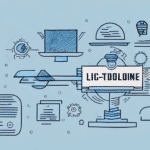Understanding the Importance of Last Mile Delivery for Your Business
In today's rapidly evolving business landscape, last mile delivery is a critical component of the supply chain that can significantly influence customer satisfaction and retention. The final leg of the delivery process, where a shipment moves from a distribution center to the customer's doorstep, often determines the overall perception of a company's service quality.
According to a Forbes report, businesses that excel in last mile delivery experience higher customer loyalty and increased repeat purchases. On the contrary, inefficiencies in this stage can lead to lost sales, tarnished brand reputation, and diminished customer loyalty.
Challenges such as unpredictable traffic and adverse weather conditions can disrupt delivery schedules, affecting the customer experience. To address these issues, companies are investing in real-time tracking and communication tools, enabling customers to monitor their shipments and receive timely updates. This transparency fosters trust and enhances the overall delivery experience.
Evaluating and Choosing the Right Last Mile Delivery Provider
Assessing Your Business Needs
Before selecting a last mile delivery provider, it's essential to thoroughly evaluate your business's specific needs. Consider factors such as:
- Delivery Times: Do you require same-day, next-day, or standard delivery options?
- Delivery Areas: Are you operating locally, nationally, or internationally?
- Package Specifications: What are the size and weight limits of your shipments?
- Service Levels: Do you need specialized services like white-glove delivery or installation?
Researching Potential Providers
Once you've outlined your requirements, conduct comprehensive research on potential providers. Look for:
- Reputation and Reliability: Check reviews and testimonials from other businesses.
- Experience in Your Industry: Providers familiar with your sector can better understand your needs.
- Technology Integration: Ensure they use advanced tracking and communication systems.
Comparing Quotes and Services
Request detailed quotes from shortlisted providers and compare them based on:
- Cost-effectiveness
- Range of services offered
- Flexibility in delivery options
Choose a provider that not only fits your budget but also aligns with your business goals and customer expectations.
Benefits of Partnering with a Reliable Last Mile Provider
Enhanced Customer Satisfaction
A dependable provider ensures timely deliveries, reducing the likelihood of delays and missed shipments. This reliability boosts customer satisfaction and encourages repeat business.
Operational Efficiency
Partnering with an experienced provider can streamline your delivery operations, allowing you to focus on core business activities. Efficient last mile delivery reduces operational costs and improves overall productivity.
Real-Time Tracking and Transparency
With real-time tracking capabilities, both businesses and customers can monitor the status of deliveries. This transparency helps in proactively addressing any issues that may arise during transit.
Customized Solutions
Reliable providers offer tailored delivery solutions to meet specific business needs, such as same-day delivery for urgent orders or specialized handling for fragile items.
Streamlining Last Mile Delivery Operations
Optimizing Delivery Routes
Use route optimization software to plan the most efficient paths for your delivery fleet. This can significantly reduce fuel consumption and delivery times.
Investing in a Reliable Fleet
Maintain a fleet of well-maintained vehicles equipped with the latest technology, such as GPS tracking and temperature control systems, to ensure the safe and timely delivery of goods.
Implementing Effective Inventory Management
Accurate inventory management ensures that you have the necessary products in stock to fulfill orders promptly, reducing the risk of delays.
Training Delivery Personnel
Provide comprehensive training to your delivery drivers on safe driving practices and excellent customer service to enhance the overall delivery experience.
Leveraging Technology to Optimize Last Mile Delivery
Route Optimization Software
Advanced route optimization tools can minimize travel time and fuel costs by identifying the most efficient delivery routes. According to a Supply Chain Digital article, companies using route optimization see a reduction in delivery costs by up to 20%.
Real-Time Tracking and Communication
Implementing real-time tracking systems allows both businesses and customers to monitor delivery progress. These systems provide instant updates and can alert customers to any potential delays.
Emerging Technologies
Innovations such as drones and autonomous delivery vehicles are beginning to revolutionize last mile delivery, offering faster and more efficient delivery options in the near future.
Overcoming Common Last Mile Delivery Challenges
Traffic Congestion and Weather Conditions
Develop contingency plans that include alternate routes and backup delivery personnel to navigate traffic and adverse weather conditions effectively.
Ensuring Effective Communication
Maintain open and transparent communication channels with both customers and delivery providers to manage expectations and promptly address any issues.
Managing Delivery Exceptions
Implement systems to handle delivery exceptions, such as missed deliveries or incorrect addresses, ensuring swift resolution and minimal disruption to the customer experience.
Future Trends and Best Practices in Last Mile Delivery
Sustainability Initiatives
The industry is increasingly focusing on eco-friendly delivery methods to reduce carbon emissions. Options include electric delivery vehicles and bicycle couriers, especially in urban areas.
Data-Driven Decision Making
Utilize analytics to gain insights into performance metrics and customer preferences, enabling informed decisions that enhance delivery efficiency and customer satisfaction.
Innovative Packaging Solutions
Advancements in packaging design are making deliveries more sustainable and efficient, minimizing waste and simplifying the delivery process.
Adapting to E-Commerce Growth
The surge in e-commerce continues to shape last mile delivery strategies, with businesses adapting to meet the increasing demand for fast and reliable delivery services.
Best Practices for Managing and Monitoring Last Mile Deliveries
Rigorous Planning and Routing
Plan delivery routes meticulously to maximize efficiency and reduce costs. Regularly review and adjust routes based on traffic patterns and delivery volumes.
Frequent Communication
Maintain consistent communication with customers and delivery personnel to keep all parties informed about delivery statuses and any potential delays.
Quality Control Measures
Implement strict quality control protocols to ensure that deliveries meet your company's standards and customer expectations.
Performance Metrics
Establish and monitor key performance indicators (KPIs) such as on-time delivery rates, delivery exceptions, and customer satisfaction scores to assess and improve delivery performance.
Measuring Success: Metrics to Track for Effective Last Mile Deliveries
On-Time Delivery Rates
Track the percentage of deliveries that arrive on or before the promised time to gauge the reliability of your delivery operations.
Delivery Exceptions
Monitor instances of missed deliveries, damaged goods, and other exceptions to identify areas needing improvement.
Customer Satisfaction Scores
Collect feedback from customers to assess their satisfaction with the delivery experience and identify opportunities for enhancement.
Operational Costs
Analyze costs related to fuel consumption, driver hours, and other operational expenses to ensure cost-effectiveness.
Risks and Mitigation Strategies for Managing the Last Leg of Your Supply Chain
Missed Deliveries
Establish clear service level agreements (SLAs) and implement contingency plans to address and minimize the occurrence of missed deliveries.
Damage to Goods
Introduce quality control measures and proper handling protocols to reduce the risk of goods being damaged during transit.
Miscommunication
Ensure effective communication channels between your business, customers, and delivery providers to prevent misunderstandings and resolve issues promptly.
Regular Performance Monitoring
Consistently monitor delivery performance and review communication strategies to swiftly address and rectify any problems, maintaining high levels of customer satisfaction.
As the final and often most critical step in the delivery process, choosing the right last mile provider is essential to your business. By evaluating your needs and priorities, staying abreast of industry trends, and prioritizing open communication and collaboration, you can successfully manage your last mile delivery operations and provide an outstanding customer experience.



















